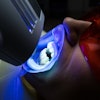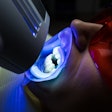
Faced with dozens of lawsuits filed by consumers claiming they were harmed by Super PoliGrip and other denture adhesives that contain zinc, GlaxoSmithKline (GSK) announced that it will stop manufacturing these products and replace them with zinc-free alternatives.
In an advisory issued February 18, the company warned consumers about the potential health risks associated with long-term excessive use of zinc-containing denture adhesives, including Super PoliGrip Original, Super PoliGrip Ultra Fresh, and Super PoliGrip Extra Care.
"GSK has taken voluntary, precautionary action to end the manufacture and supply of its zinc-containing denture adhesives marketed across many countries," the company said in a statement on its Web site. "We are taking these actions because we have become aware of potential health problems associated with the long-term excessive use of our zinc-containing denture adhesive products. However, it is important for consumers to know that these products remain safe to use as directed on the product label."
Adverse neurological effects
Some forms of Super PoliGrip and Fixodent (Procter & Gamble) contain a form of zinc, which is bonded to an unknown formulation. While a small amount of zinc is necessary for a balanced diet, exposure to an excessive amount can result in copper depletion and serious negative adverse neurological effects.
“This really is about consumer health and safety.”
— Malesia Dunn, GlaxoSmithKline
In 2008, the peer-reviewed journal Neurology reported on four patients suffering from neuropathy and other neurological symptoms typical of zinc poisoning and copper depletion (August 2008, Vol. 71:9, pp. 639-643). The article specifically linked excess zinc in Super PoliGrip to "profound neurologic disease" in the patients reviewed.
"While zinc is an essential part of the diet, recent publications suggest that an excessive intake of zinc-containing denture adhesives over several years may lead to the development of neurological symptoms and blood problems such as anemia," the GSK consumer advisory states. "Neurological symptoms may include numbness, tingling, or weakness in the arms and legs, and difficulties with walking and balance."
GSK contends that the products are safe when used as directed, but that some consumers apply more adhesive than directed and use it more than once per day.
The acceptable daily zinc intake is 8 mg for women and 11 mg for men, and more than 40 mg constitutes zinc poisoning, according to the U.S. National Academy of Sciences.
A 2.4-oz (68-gram) tube of Super PoliGrip contains 38 mg of zinc per gram of product, and GSK recommends that a single tube should last approximately six weeks.
"This really is about consumer health and safety," Malesia Dunn, a GSK spokesperson, told DrBicuspid.com. "That is what led us to the decision to issue this advisory. We do know that some people have been using denture adhesives in excess over the long term, and we wanted to issue this advisory as a precautionary measure to minimize any potential risk."
GSK said it will transition to zinc-free versions of its Super PoliGrip products, with "Zinc Free" clearly shown on the new packaging. Dunn said she did not know when the new formulations would become available to consumers.
Lawsuits still pending
"It is satisfying to see GSK finally act responsibly by pulling Super PoliGrip from store shelves, which is something we think they should have done a long time ago," said Eric Chaffin, a partner at law firm Chaffin Luhana, which represents dozens of denture cream users who claim they suffered injury from the zinc-containing products, in a press release. "We think there are clearly safer alternatives on the market and are glad to see that GSK will be putting out more zinc-free formulations and moving away from this dangerous product line."
As for the pending lawsuits, "we still have a lot of work to do," he added. "In the near term, I'd like to see Procter & Gamble wake up and act responsibly by following GSK's lead to change this industry and withdraw Fixodent from the market. Then and only then will all denture cream consumers be safe in our view."
Attorneys at Parker Waichman Alonso, which also has filed numerous lawsuits on behalf of alleged victims of Super PoliGrip and Fixodent, said they applaud GSK for its decision to voluntarily stop the manufacture, distribution, and advertising of all Super PoliGrip denture adhesive products made with zinc.
"It is the firm's hope that GlaxoSmithKline will ultimately issue a full recall of all zinc-containing Super PoliGrip products, and it strongly urges Procter & Gamble to act in a similar fashion to protect the public from the risks posed by Fixodent, the other zinc-containing denture cream on the market," the firm stated in a press release.
Tricia Gottlieb, a spokesperson for Procter & Gamble's Fixodent products, told DrBicuspid.com that the company is sticking by its statement that its products are safe and effective when used as directed.
"As with all consumer products, it is important to follow all label directions," she said. "Fixodent contains ingredients that are recognized as safe in the amounts used, and all Fixodent products are made, packaged, and labeled in accord with FDA manufacturing practices. We are recommending that denture wearers see their dentists regularly to ensure their dentures are fitting properly."
Dozens of denture cream zinc-poisoning lawsuits have been consolidated in the Denture Cream Products Liability Multidistrict Litigation currently pending in the U.S. District Court for the Southern District of Florida, Miami Division. The lawsuits allege that the manufacturers of these denture creams misled consumers about their risks and failed to provide adequate warnings and instructions to prevent deviation from accepted use.
Copyright © 2010 DrBicuspid.com



















